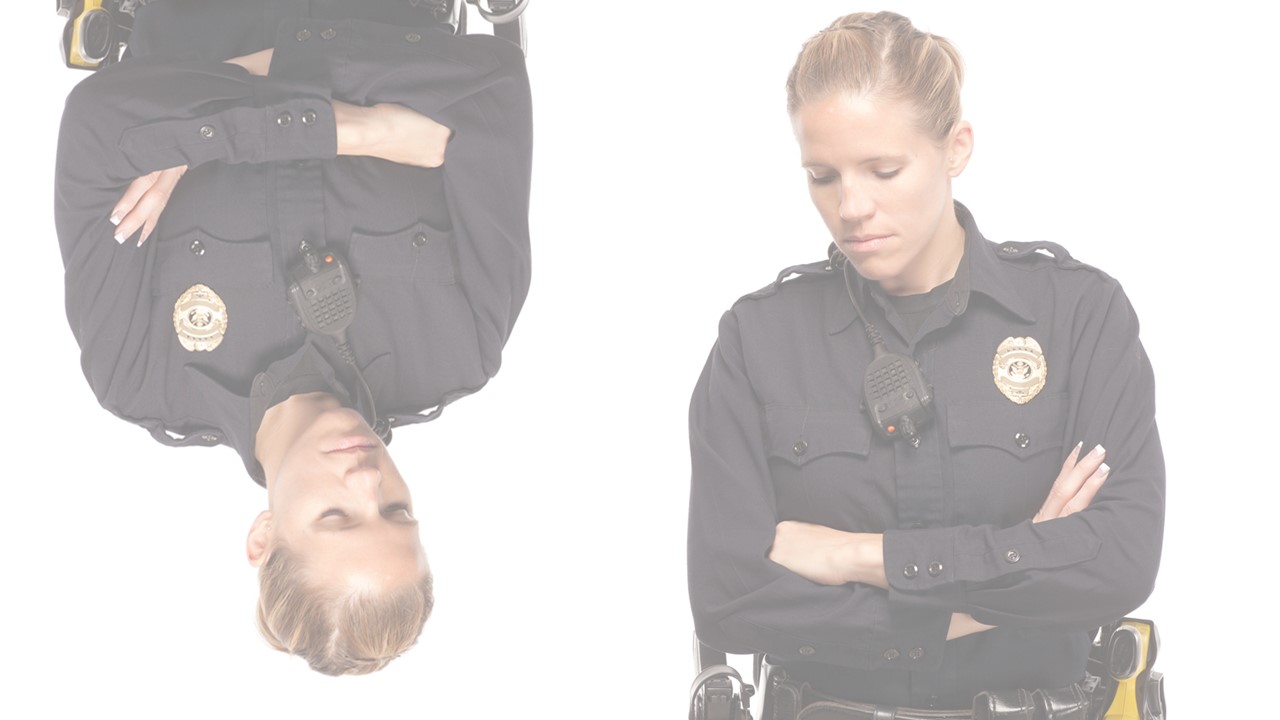
When it comes to staying psychologically healthy, police, firefighters, and emergency medical technicians (EMTs) face a conundrum. They regularly enter traumatic circumstances: responding to suicides, watching a critically injured patient die, and risking their own lives. At the same time, they are usually the ones providing help—rather than asking for it.
“First responder culture is unique. When the building is on fire or someone’s shooting, and everyone else is running away, we’re running towards it,” said Richard Brown, a retired firefighter, the department chaplain and peer support lead for the Calaveras Consolidated Fire Protection District in Northern California, and California delegate for the National Volunteer Firefighter Council (NVFC).
For that reason, it can take special training and psychological interventions to address the unique challenges they face—and experts say it’s critically important to do so. Without science-based support, first responders who experience trauma have an elevated risk for post-traumatic stress (PTS), depression, and even suicide, according to a Substance Abuse and Mental Health Services Administration guide for first responders published in 2018.
“This is different than the kind of slow burn stress that can accompany an occupation like being a lawyer or an accountant,” said Dennis Stolle, JD, PhD, senior director of applied psychology at the American Psychological Association. “That makes it very important for first responders to have access to immediate mental health services with providers who are skilled at helping people work through traumatic events.”
Stress on the Job
On top of the unexpected, dangerous, and highly traumatic circumstances they encounter on a regular basis, first responders also face ongoing stress due to the nature of their jobs, said Thomas Britt, PhD, a professor of psychology at Clemson University in South Carolina. “First responders have to deal with time pressure, heavy workloads, and shift work that interferes with their circadian rhythms,” he said.
Those on-the-job issues are closely tied to clinical concerns such as anxiety, depression, and suicide risk, according to the 2022 National Wellness Survey for Public Safety Personnel. “It’s within-the-agency stressors that really seem to have the strongest link to emotional pain,” said Colby Mills, PhD, a police psychologist in private practice in Fairfax County, Virginia, who helped administer the survey.
Certain groups of first responders may face additional challenges. Volunteer firefighters, who make up 65% of all firefighters in the United States, often work second jobs to earn a living. Those based in smaller communities may face a high likelihood of encountering a victim they know during a crisis. And other workers who are peripherally involved in emergency response—dispatchers who hear panicked mothers over the phone, tow truck drivers who see the aftermath of deadly car crashes—may also need support, Brown said.
That impact, according to research, can include PTS symptoms, depression, anxiety, and a heightened risk of suicide. It can also lead to problems at home—what psychologists call “spillover”—including conflict with a partner or child.
When these problems arise, police, firefighters, and EMTs may prefer to handle them on their own, Britt said. The highly cohesive culture of emergency response leaves many workers reticent to ask for help for fear of appearing weak or letting a team member down. In Mills’s survey of public safety personnel, stigma around mental health concerns was also among the top reasons people chose to suffer in silence.
How to Help
Fortunately, there are research-backed ways to help. Here are some of ICMA’s recommendations for caring for the mental health of first responders:
Be ready to respond when a critical incident occurs.
Structured interventions, including Critical Incident Stress Management (CISM) and Stress First Aid, can help first responders avoid long-term mental harm after a crisis. The programs teach skills that anyone in a department can learn and use—not just a mental health care provider.
In California, Brown relies on the CISM framework for both casual and formal peer-support groups to help volunteer firefighters debrief after particularly stressful incidents. “Getting training is critical because you can have someone well-meaning trying to help, but actually creating more of a problem,” he said.
Connect responders with trained and vetted providers.
Some individuals may need one-on-one support, in which case it’s important to find a mental health care professional with relevant expertise, such as a National Emergency Response and Public Safety Center certification or experience working with first responders. “We can make it easier for people to seek help by having more of us out there who know their culture,” Mills said.
Through its Share the Load program, the NVFC offers a directory of approved behavioral health professionals, a helpline, and a toolkit for building psychologically healthy fire departments. The Fraternal Order of Police also interviews and vets providers trained in the culture of law enforcement.
Build a healthy department culture around mental health.
Research shows that training programs such as Reach Out, REBOOT, Responder Strong, and other efforts can improve psychological well-being, supportive behaviors, and behavioral health care utilization among first responders. Adding opportunities to recover from work stress, including more downtime during and between intense shifts, can also help.
Departments bear responsibility for making systemic changes rather than simply expecting workers to become more resilient, Britt said. One of the best ways to encourage help-seeking is to start from the top. In Fairfax County, former Police Chief Ed Roessler frequently spoke about his mental health within the department and in the media. “If there’s a credible person at the top promoting this message and leading by example, that does more than a provider could ever do to reduce stigma,” Mills said.
This article was developed in partnership with the American Psychological Association.

ZARA ABRAMS is a freelance science writer based in Los Angeles. She writes about psychology, neuroscience, and health.
New, Reduced Membership Dues
A new, reduced dues rate is available for CAOs/ACAOs, along with additional discounts for those in smaller communities, has been implemented. Learn more and be sure to join or renew today!
